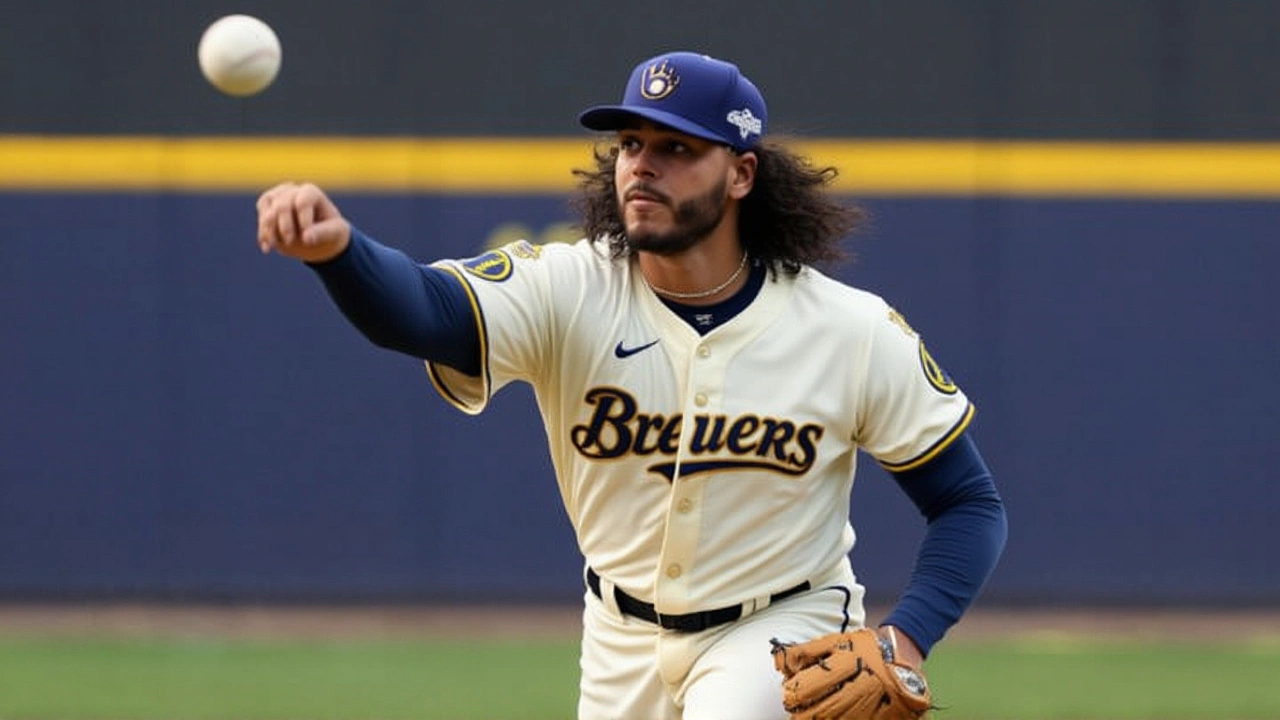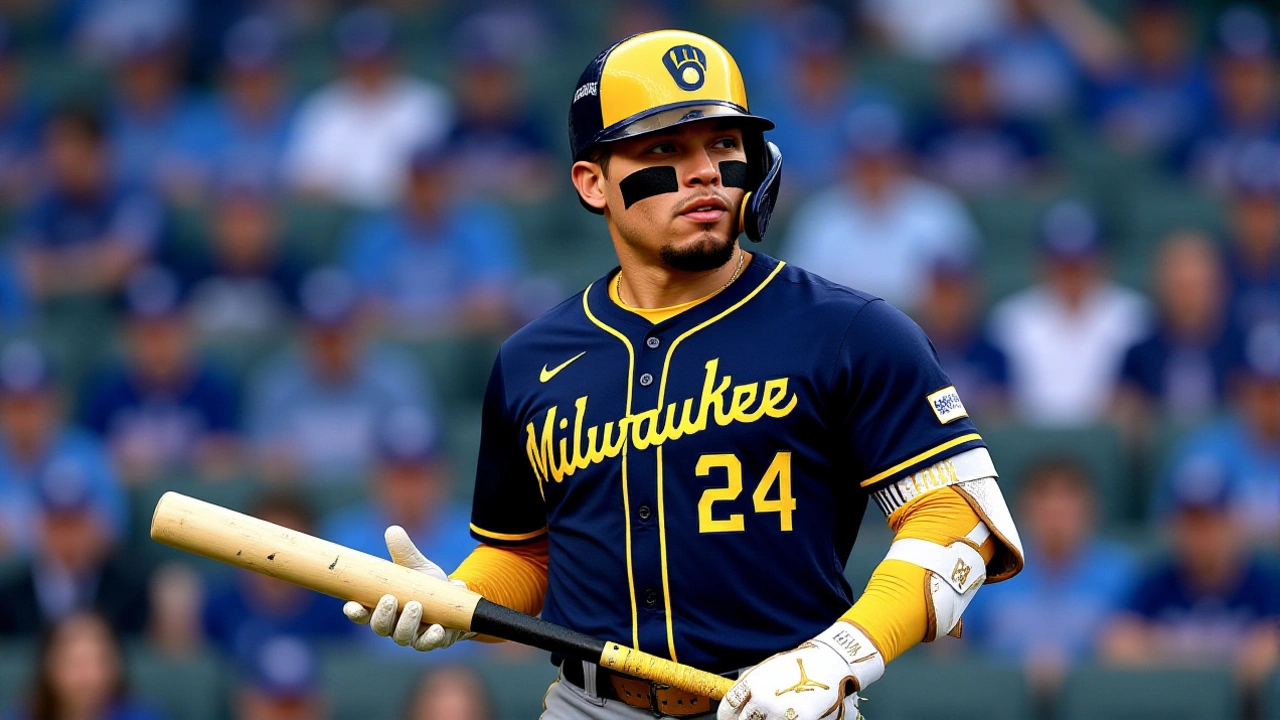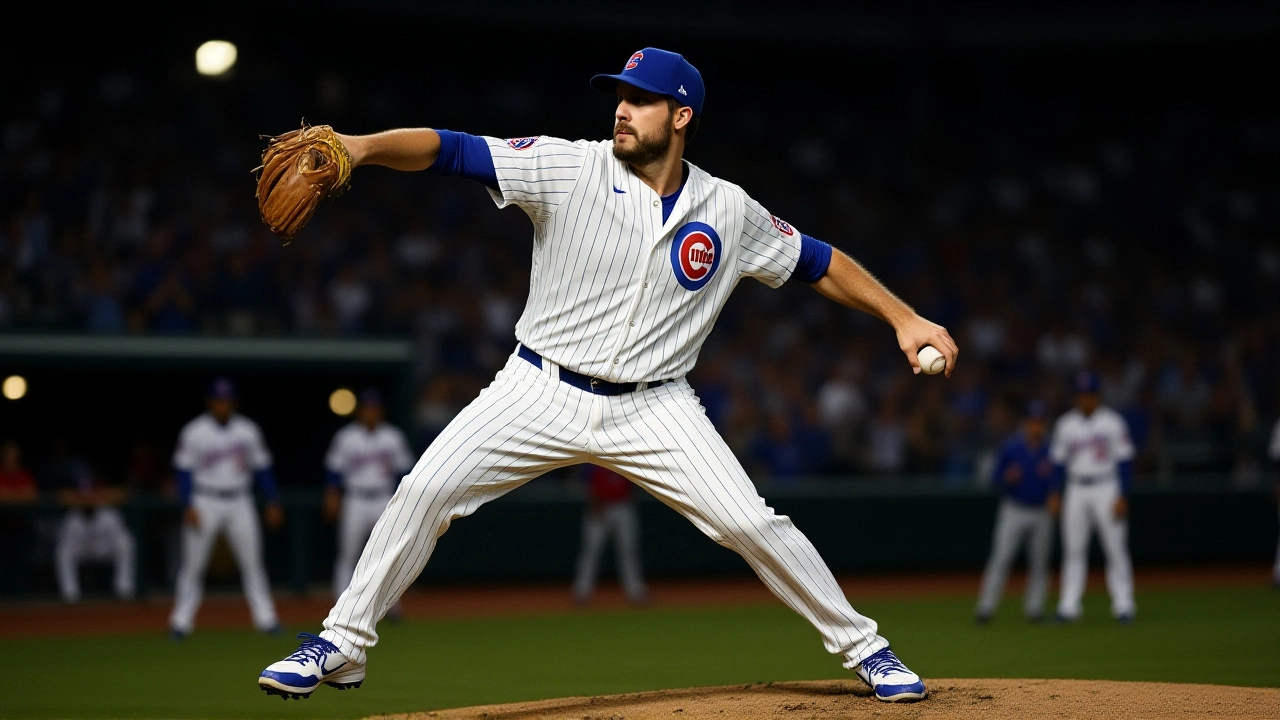Freddy Peralta’s Game‑4 Slip and Brewers’ Game‑5 Comeback
 Oct, 12 2025
Oct, 12 2025
When Freddy Peralta, the Milwaukee Brewers’ ace, walked onto the mound at Wrigley Field on October 10, 2025, the stakes felt like a ticking clock.
The National League Division Series (NLDS) was tied 2‑2, and Brewers manager Pat Murphy had penciled Peralta in for a four‑day rest, hoping his fastball would lock down the decisive Game 5 back in Milwaukee.
But the first inning proved merciless. Cubs left‑fielder Ian Happ launched a three‑run homer off a pitch that Peralta described as “exactly what we wanted.” The blast turned a 0‑0 game into a 3‑0 deficit before Peralta could even settle his rhythm.
What Went Wrong in the First Frame?
“It was just a pitch that he was able to hit,” Peralta said in the post‑game interview, shrugging off the criticism. Yet William Contreras, the Brewers’ catcher, offered a softer take: “I think it could've been a better pitch, but credit to Ian for timing it perfectly.”
Murphy, never one for sugar‑coating, summed it up plainly: “The first‑inning pitch to Happ changed the game.” The veteran manager reminded fans that Peralta had only two outs before the ball left the park, a tiny window that left no room for correction.
After that early trouble, Peralta demonstrated why he earned the ace label. He dropped his fastball usage to a third of his pitches, relied on a sharp change‑up, and induced 15 whiffs in 42 swings. He struck out six batters over the next three innings, effectively stifling the Cubs’ offense until he was pulled after four innings.
The Bigger Picture: First‑Inning Woes Across the Series
This wasn’t the Brewers’ first nightmare start of a series. For the fourth straight NLDS game, a Milwaukee starter surrendered runs in the opening frame. In total, the team gave up 11 first‑inning runs over the first four contests, a pattern that would force a strategic rethink for Game 5.
Trevor Megill, the Brewers’ All‑Star closer, had already seen action in Games 2 and 4. His role was about to shift dramatically, and the coaching staff decided a bold opener experiment would be their best bet.
Game‑5 Blueprint: Megill Starts, Pomeranz Counters
On the afternoon of Friday, October 10, the Brewers held a voluntary practice at American Family Field. Instead of Peralta, the plan was to let Megill kick off the game, a move that mirrored the “all‑hands‑on‑deck” mindset Murphy championed.
Across the alley, Chicago’s long‑reliever Drew Pomeranz was lined up to meet Megill in the first inning. Both teams knew the opening frame would be the decisive battleground.
When Game 5 unfolded on October 11, 2025, the strategy paid off. Megill kept the Cubs off balance, allowing just one run in five innings. The Brewers’ offense, finally finding its groove, responded with three runs of their own, securing a 3‑1 victory and a ticket to the National League Championship Series (NLCS).

Peralta’s Perspective After the Win
In a concise 1‑minute‑26‑second video posted on MLB.com, Peralta reflected on the series. “Advancing to the NLCS took a lot of hard work,” he said, “and we learned a lot from that tough Game 4.” He emphasized the team’s resilience, noting that every member had to “fight back” after the early setbacks.
Murphy echoed that sentiment in the post‑game press conference: “We knew the tables could turn at home. Our guys gave everything, and we found a way to win when it mattered most.”
Why This Series Matters Beyond the Scoreboard
The Brewers‑Cubs NLDS was the first postseason face‑off between the two rivals, despite a shared 140‑year history that includes the dramatic Game 163 tiebreaker in 2018. The series also featured former Brewer coach David Ross on the Cubs bench, adding a personal twist to the rivalry.
Milwaukee’s run this season has already been billed as “the best in franchise history,” a narrative that grew louder after the loss of longtime broadcaster Bob Uecker earlier in the year. The NLDS win cemented the Brewers’ status as a contender and set the stage for a potential clash with the powerhouse Los Angeles Dodgers in the NLCS.

What’s Next for the Brewers?
Looking ahead, the Brewers will need to manage their pitching depth carefully. Peralta, still on short rest, is likely to return for Game 1 of the NLCS, while Megill’s versatility will be a valuable asset in any bullpen game.
Fans can expect the team to continue leveraging its strong offensive core—led by William Contreras and slugger Randy Morales—against a Dodgers rotation that includes ace Clayton Kershaw. The next few weeks will test whether Milwaukee’s “all‑hands‑on‑deck” approach can translate into a World Series berth.
Frequently Asked Questions
How did Freddy Peralta’s Game‑4 performance affect the Brewers’ Game‑5 strategy?
Peralta’s early three‑run homer in Game 4 forced Milwaukee to ditch the traditional four‑day rest plan. Manager Pat Murphy opted for a bullpen‑heavy opener, starting Trevor Megill instead, to neutralize the Cubs’ first‑inning threat that had plagued the series.
Who were the key players for the Brewers in Game 5?
Trevor Megill delivered a steady start, allowing only one run. Offensively, William Contreras drove in a run, while Randy Morales contributed a crucial RBI single that helped build the 3‑1 lead.
What historical significance does this NLDS hold for both teams?
It was the first postseason meeting between the Brewers and Cubs, despite decades of regular‑season rivalry and the famous 2018 Game 163 tiebreaker. The series also featured former Brewer coach David Ross managing the Cubs, adding a personal narrative layer.
What does the Brewers’ victory mean for their upcoming NLCS matchup?
The win propels Milwaukee into the NLCS, likely against the Los Angeles Dodgers. It reinforces the team’s depth and validates the aggressive pitching approach, but also highlights the need for careful bullpen management as they face a historically dominant opponent.
How did the Cubs respond to the Brewers’ Game‑5 tactics?
Chicago relied on long‑reliever Drew Pomeranz to keep the game close, but the early run he gave up set the tone. The Cubs were unable to generate enough offense against a disciplined Brewers bullpen, ultimately falling short 3‑1.
